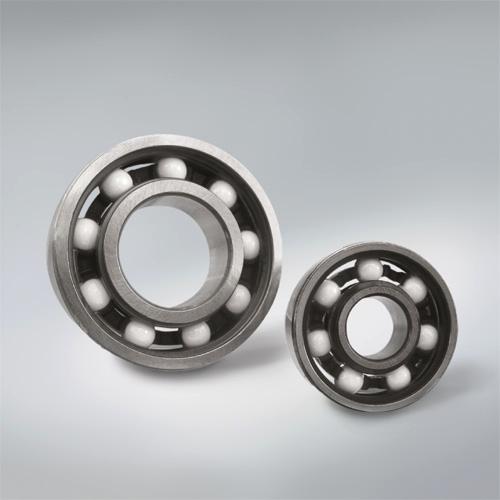All air handling quality bearings are vibration and noise tested to check for microscopic manufacturing defects that could cause higher noise levels or premature failures of the bearings.
Bore size verification is also required to high air handling quality standards. The bore is the inner diameter of the bearing. Inspection is done to ensure the inner race diameter is within the tolerance. A bore size larger than tolerance would allow the bearing to shift and misalign itself with the shaft.
How long will a bearing last? The industry answer is based on a set of calculations by the American Bearing Manufacturers Association. Basic rating life is stated as L10 and L50. L10 and L50 define the number of hours an individual bearing will operate before the first evidence of metal fatigue develops.
L10 means 90% of the bearings will still be working long after the specified hours and only 10% will show signs of failure. L10 is the most common measure of bearing life. L50 means 50% of the bearings will show signs of wear over a specified number of hours. L50 is described as average life. L50 bearing life is approximately five times the L 10 bearing life. An example would be an L10 80,000 hours equals L50 400,000 hours.
Keep in mind that the basic rating life of the bearing is a theoretical calculation that assumes the unit is well maintained. Lubrication and proper maintenance is important to ensure the life of bearings. Some bearings are packed with grease and do not need re-lubrication. They are often used in low-speed, low horsepower units and are known as permanently lubricated.
For higher speed fans, the HVAC industry primarily uses grease lubricated bearings. When lubricating the bearing, grease is pumped into the grease fitting. The impeller should be rotating as the grease in injected. If that is not safe, the shaft shall be manually rotated. Grease shall be pumped into the bearing until the old grease purges out the seals and clean grease begins to purge out. Manufacturers should provide maintenance schedules and recommendations for lubrication. Generally, high quality lithium complex grease conforming to NLGI grade 2 is recommended.

Bearings must meet air handling quality specifications for:
Engineers should specify the desired bearing life.
Manufacturers will select the bearing type based on:
PREVIOUS: Fan bearings (2)